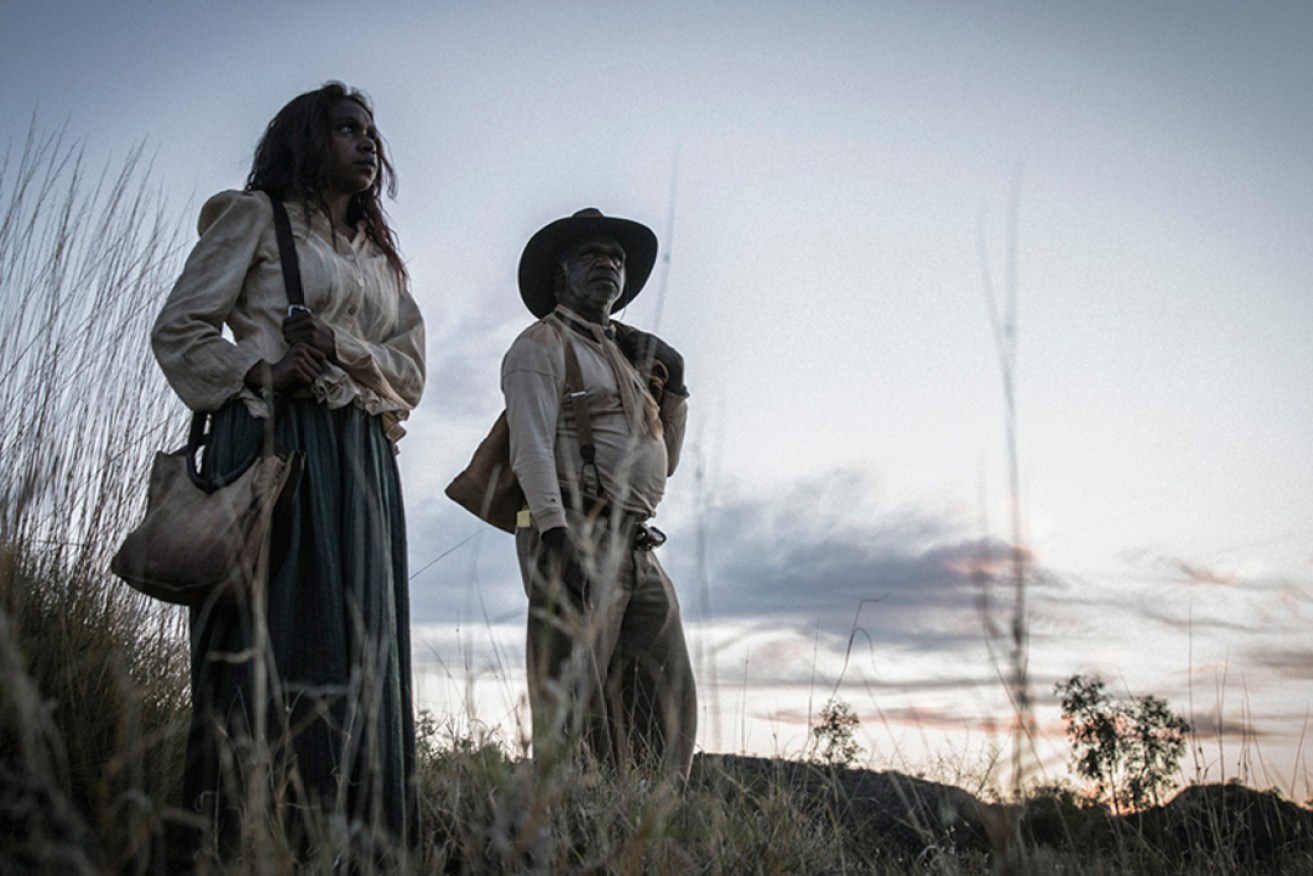Adelaide Film Festival review: Sweet Country
Warwick Thornton’s period western Sweet Country is a shocking film that is, at times, difficult to watch. But as the director told its Australian premiere in Adelaide, it is a story that needs to be told.

A scene from Sweet Country. Photo: Mark Rogers
A suffocating feeling of menace is heavy in the dusty air from the opening scenes of Sweet Country.
It’s 1929 in the Northern Territory outback. Harsh, arid country stolen from its traditional owners by frontiersmen who now seek to bend it – and the Indigenous people – to their will.
Aboriginal stockman Sam (Hamilton Morris), his wife Lizzie (Natassia Gorey-Furber) and their young niece work for station owner Fred Smith (Sam Neill), a devout Christian. Although Smith professes that “we’re all equal here – all equal in the eyes of the Lord”, it’s clearly not a commonly held view.
When new neighbour Harry March (Ewen Leslie) rides up requesting the help of his “black stock” to build fences, Smith reluctantly agrees, sparking a series of events which culminate with Sam killing the violent and unstable March in self-defence.
He goes on the run with Lizzie, the pair chased across the desert by police sergeant Fletcher (Bryan Brown) – who, like March, has been psychologically scarred by his war experiences – and a posse including Aboriginal tracker Archie (Gibson John), Smith and another station owner, Mick Kennedy (Thomas M Wright).
Sam knows the country much better than his pursuers; he also knows that as a “blackfella” who shot a white man he can’t expect a fair trial, but it’s his love for Lizzie that forces him to make a tough decision.
Based on actual events, Sweet Country was shot largely in the MacDonnell Ranges around Alice Springs, as well as at South Australia’s Lake Gairdner, with the cinematography beautifully capturing the harsh beauty of the Australian outback.
Close-ups of native grasses blowing in the wind, a billy boiling and boots scuffing the red dirt are juxtaposed with wide images of the dusty desert, rocky ranges and the shimmering salt lake where Fletcher ends up wandering alone, dazed and dehydrated.
Thornton – who won the Camera d’Or at the 2009 Cannes Film Festival for his debut feature Samson and Delilah – maintains tension and intensity with careful pacing, sparse dialogue, a haunting score, and flashback and flashforwards that hint at violence past and to come.
His direction is often restrained, and all the more powerful for it: one of the most disturbing scenes in the film takes place behind closed doors and windows, while the incessant hammering noise in the background as Sam awaits his eventual trial – and possible execution by hanging – sets the nerves on edge.
The performances, too, are deeply affecting, particularly those by Morris and Gorey-Furber. There are many conflicted characters in Sweet Country, perhaps none more so than station owner Kennedy, whose inconsistent behaviour towards his young Aboriginal worker Philomac (a role shared by talented twins Tremayne and Trevon Doolan) initially seems inexplicable.
It is Philomac, with his cheeky defiance, who provides some of the few moments of levity in a film in which racism, brutality and injustice smack the viewer so hard you are left feeling almost winded.
Aware of its emotional impact, Thornton half apologised to the Adelaide Film Festival audience, which – like that at the Venice Film Festival, where it had its international premiere – gave the movie a standing ovation. However, he added that it was a story which needs to be told.
He’s right, of course. Because this story represents a key part of Australia’s history – although it is much more difficult to acknowledge than events recounted in other films (such as the iconic Gallipoli), which cast our forebears in a more heroic light.
After Sweet Country won the Special Jury Prize at the Venice Film Festival, the festival jury said it handled the themes of race and the struggle for survival in such a way that “it became for us a deeply emotional metaphor for our common fight for dignity”.
For Australia’s Indigenous people, that fight for dignity, for justice, is ongoing.
See more Adelaide Film Festival stories and reviews here. Sweet Country will be released in cinemas nationally at the end of January 2018.




